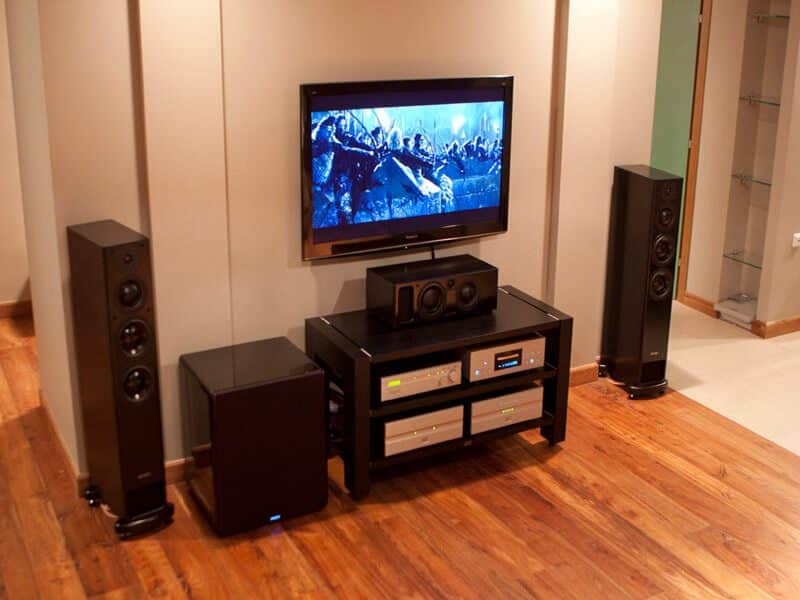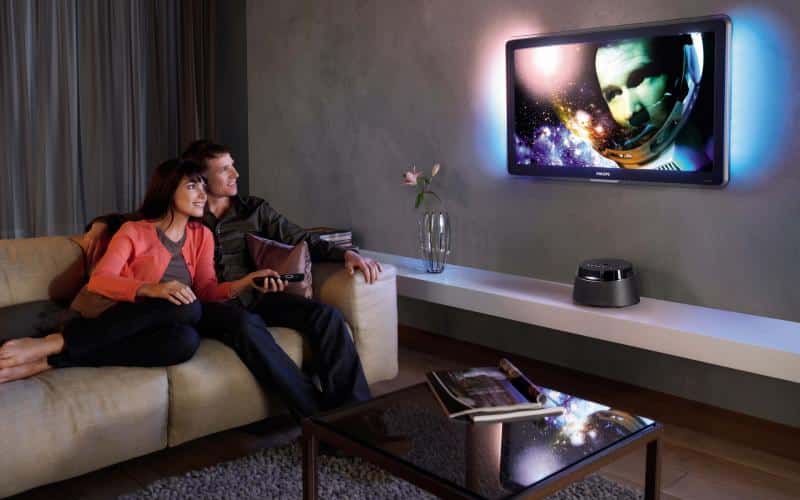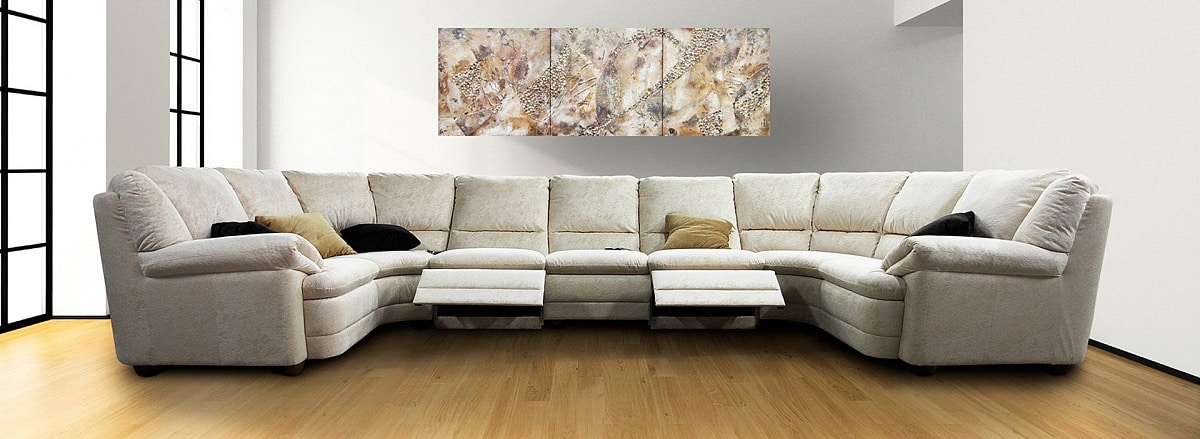People who like to spend time watching movies are increasingly interested in whether it is possible to assemble a home theater with their own hands. Experts say that this is quite possible. In order to get the most out of your cinema equipment, you need to take care of purchasing a multimedia projector / modern TV. You will also need powerful speakers. Below you can familiarize yourself with the equipment that you will need in the process of work and the advice of specialists.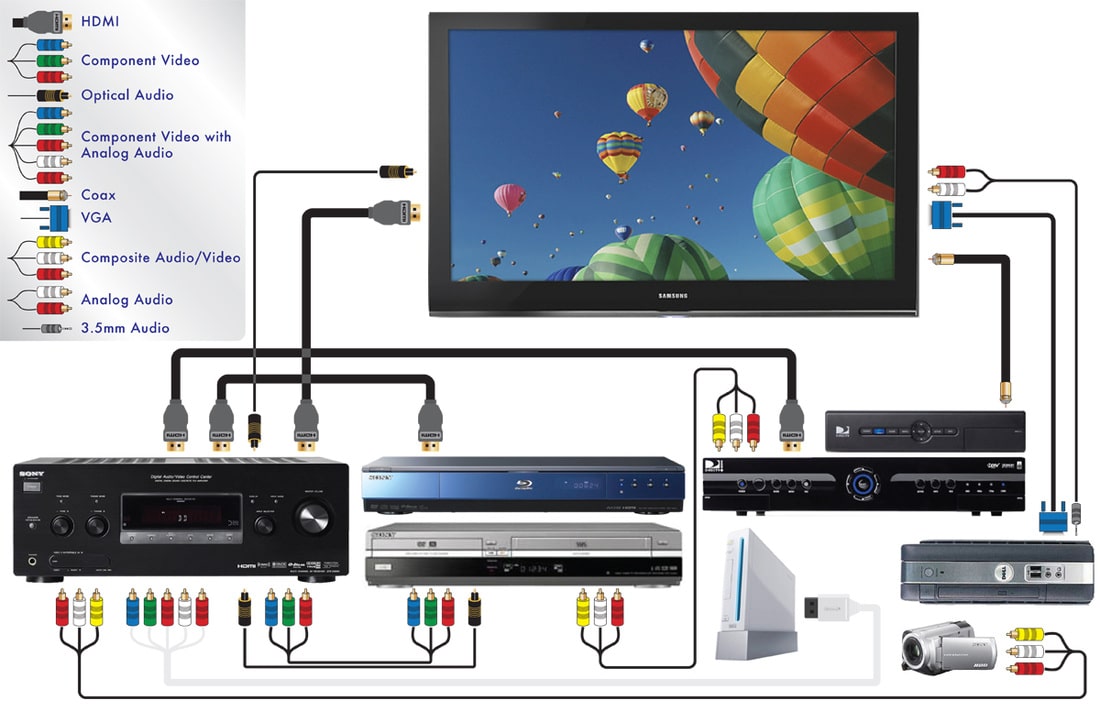 Home theater connection diagram at home [/ caption]
Home theater connection diagram at home [/ caption]
- DIY home theater: why you need it
- Preparatory stage – what you should pay attention to before manufacturing
- What to consider when choosing a room, components of the future cinema and options for manufacturing
- What components will be needed, the necessary equipment
- Diagrams and drawings for self-assembly of home theater 2.1, 5.1 and 7.1
- Making a home theater step by step
- Step-by-Step Speaker Assembly Process – Option One
- Stage 1
- Stage 2
- Stage 3
- Option for assembling a home theater yourself from a computer
- Errors and their solutions
- Tips and Secrets
DIY home theater: why you need it
Not so long ago, having a
home theater at home was considered an unaffordable luxury. However, today you will hardly surprise anyone by organizing a home theater in an ordinary apartment. People are willing to pay to be able to enjoy watching their favorite movie on the big screen at any time, without leaving their home. If funds are limited, you should try to assemble a home theater yourself. This will save the family budget and select equipment that can satisfy the wishes.
Note! The area of the room for arranging a home theater does not play a special role.
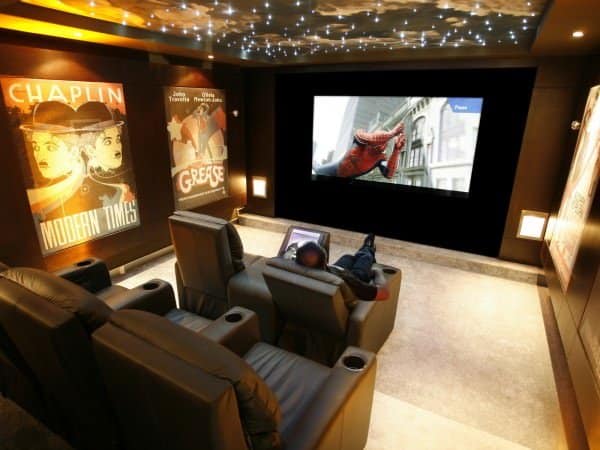
Preparatory stage – what you should pay attention to before manufacturing
When you start assembling a home theater, you should take care of the proper distribution of space. To do this, draw a detailed diagram, highlighting the required area for each component of the cinema, namely for:
- furniture (armchairs and tables);
- audio system (amplifier / speakers / subwoofer);
- video systems (projector);
- ventilation (air conditioner);
- storage drives, minibars, etc.
The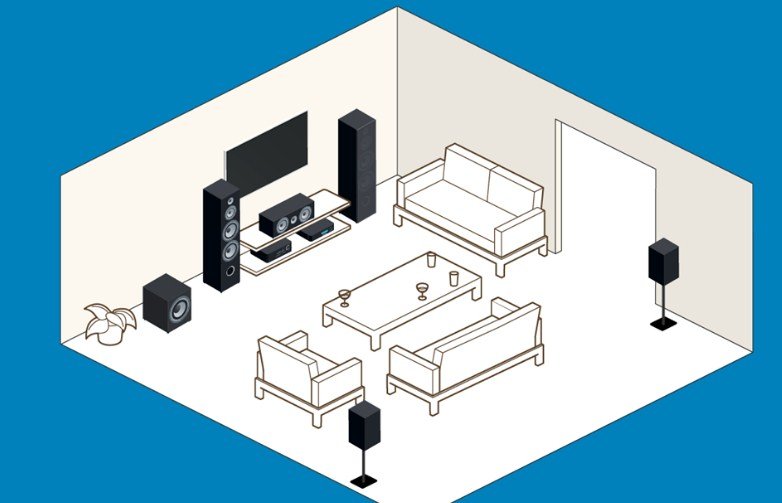 location of the home theater in the studio room [/ caption]
location of the home theater in the studio room [/ caption]
Note! The optimal room area for arranging a small home theater is considered to be a room within 42-50 sq. m.
What to consider when choosing a room, components of the future cinema and options for manufacturing
To make your movie viewing experience especially vivid, it is worth taking care of darkening the room in which the screen is installed. When choosing the level of shading, the luminous flux of the equipment used must be taken into account. Most often, preference is given to models of projectors, the power of which is in the range of 400-2000 lumens. In a room with an area of 40-50 square meters, you can select the following shading levels:
- strong – brightness 200-500 ml;
- medium – brightness in the range of 600-700 ml (the best option for watching a video in the evening when the lighting is off);
- low – brightness 900-1500 ml (ideal luminous flux for obtaining a clear image in dim daylight).
All windows in the room are covered with light filters or thick blinds. It is advisable to take care of installing adjustable lamps on the walls so that your eyes do not get tired of too saturated colors on the screen. You will also need to provide good soundproofing for your home theater. For this:
- walls are covered with materials that absorb sound;
- the surface of the floor and wall surfaces are covered with a carpet;
- the room is sheathed with fabrics with foil thread that absorb sound;
- the room is equipped with a sound-insulating door with a vestibule.
Do not forget about the organization of proper ventilation, air conditioning of the room, because against the background of the thermal radiation of the equipment, the temperature in the room often reaches uncomfortable values.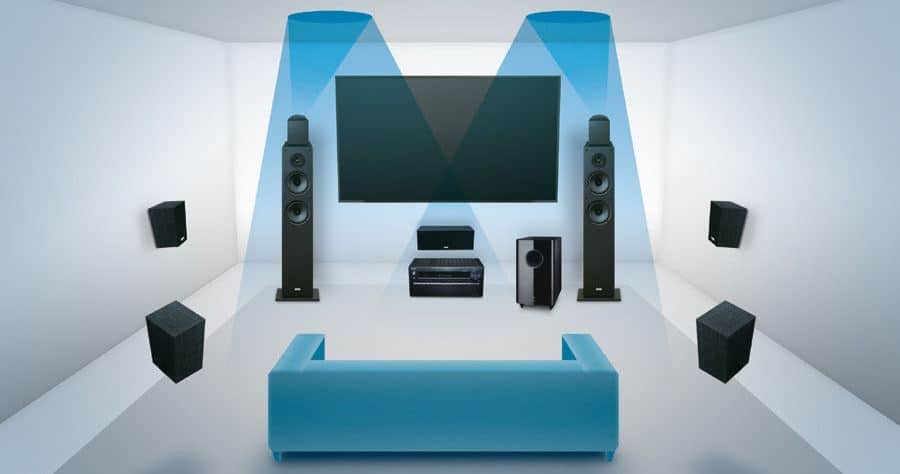 When choosing a screen, the user can give preference to both the projector and the TV. Each of the options has advantages and disadvantages. The main advantages of the TV are:
When choosing a screen, the user can give preference to both the projector and the TV. Each of the options has advantages and disadvantages. The main advantages of the TV are:
- good quality image (sufficient level of brightness / contrast / clarity);
- even in the absence of complete light isolation, this will have little effect on the image quality;
- the ability to use the speakers built into the TV;
- equipping the equipment with a wireless interface that allows it to interact with a PC / tablet / Internet.
Among the disadvantages of using a TV as a monitor for a home theater, it is worth highlighting:
- insufficient viewing angle for group viewing of videos;
- excessive brightness during prolonged viewing leads to eye fatigue;
- the diagonal size of the affordable screens is insufficient for a home theater.
Significant advantages of the projector are:
- the dimensions of the image are limited exclusively by the dimensions of the walls, so that the user can achieve the effect of a real cinema;
- the projector does not take up space in the room if it is mounted on the ceiling;
- the image formed after reflection from the background has practically no negative effect on vision.
When purchasing a projector as a home theater screen, it is important to remember that the picture will be less bright and clear than a TV. It should also be borne in mind that the projector will heat up and the DLP lamps will fail every 2000-3000 hours of operation.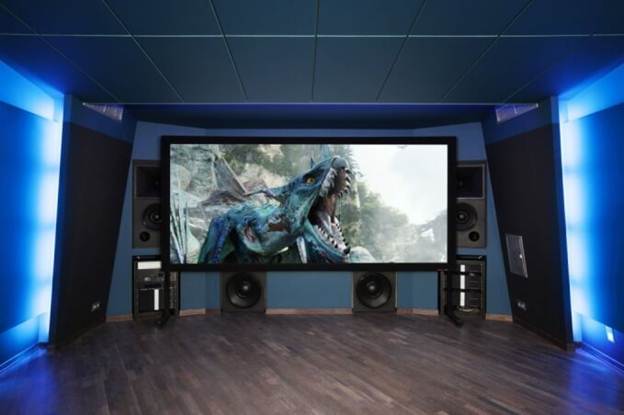
What components will be needed, the necessary equipment
Getting started assembling a home theater, you should take care of purchasing the necessary equipment and components, namely:
- a projector (DLP with rich colors or LCD that does not let your eyes get tired quickly);

- screen for the projector;
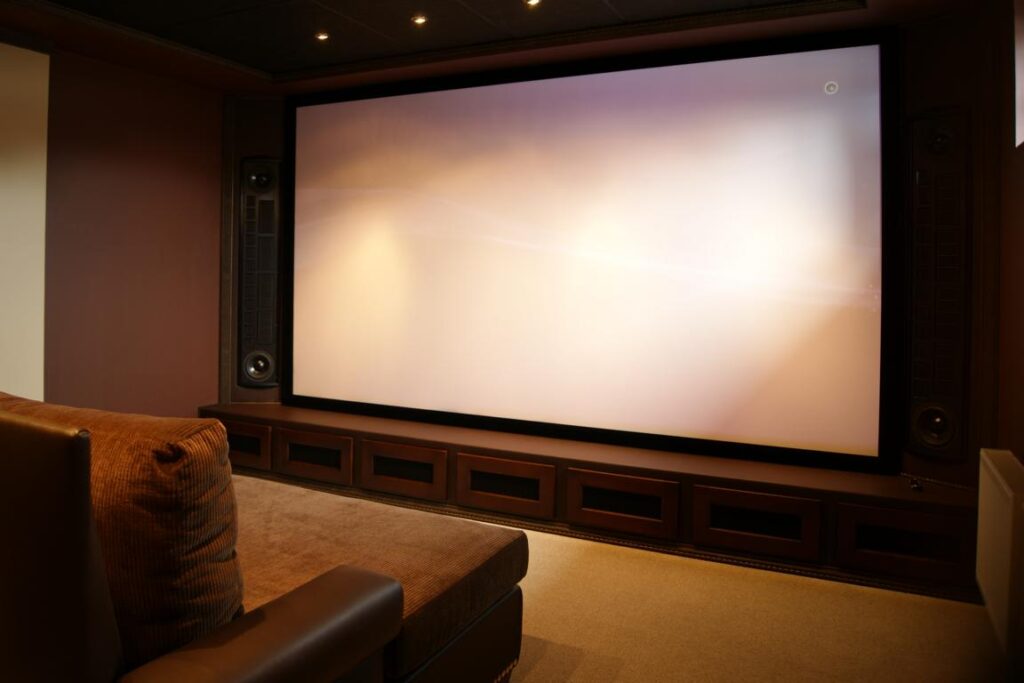
- sound system;
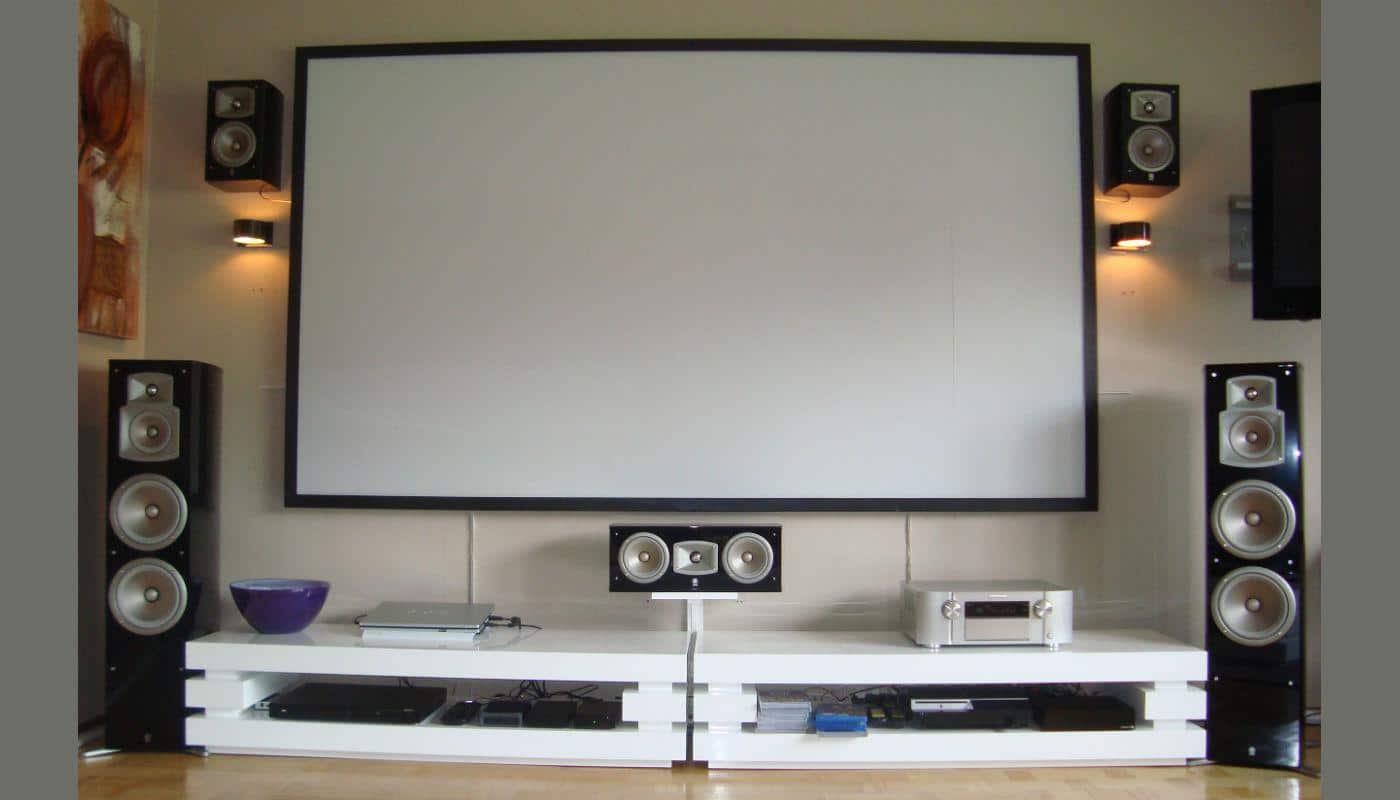
- computer / player;
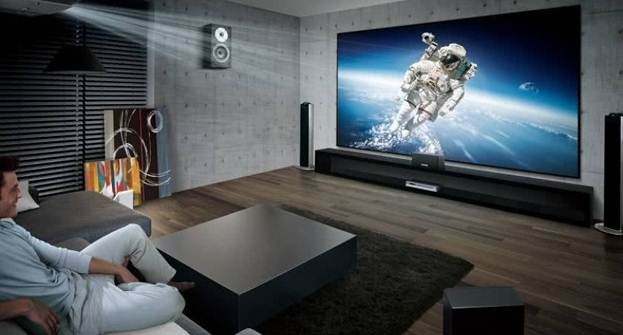
- window light filters.
The cost of the projector is acceptable for most users, the screen resolution / quality / level of brightness and contrast of the image are suitable for a home theater. To obtain a high-quality saturated picture, it is necessary to give preference to models with a resolution of 1280 × 720 pixels. The projector will require an appropriate screen (motorized / recessed / widescreen, etc.). It is recommended to give preference to tension or roll models. Tension options are durable, and roll options will delight you with ease of use. In order to save money, a layer of special screen paint can be applied to the wall surface. The image in this case will be clear and bright.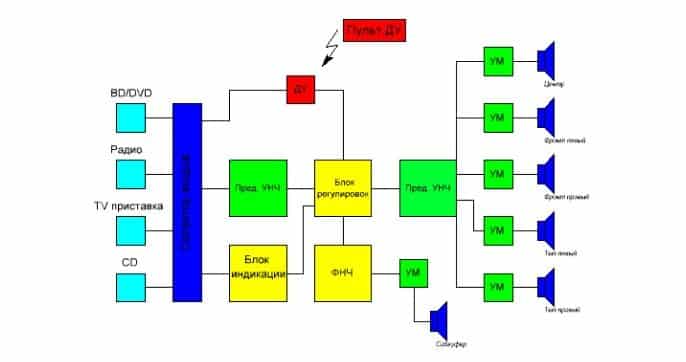 Home theater elements – schematic arrangement [/ caption] When choosing a sound system, you should take into account a specific room, which will give you the opportunity to get surround sound. The speaker system can be placed in niches or left in plain sight.
Home theater elements – schematic arrangement [/ caption] When choosing a sound system, you should take into account a specific room, which will give you the opportunity to get surround sound. The speaker system can be placed in niches or left in plain sight.
Diagrams and drawings for self-assembly of home theater 2.1, 5.1 and 7.1
Below you can familiarize yourself with the installation diagrams of systems 2.1, 5.1 and 7.1. System 5.1 System 7.1
System 7.1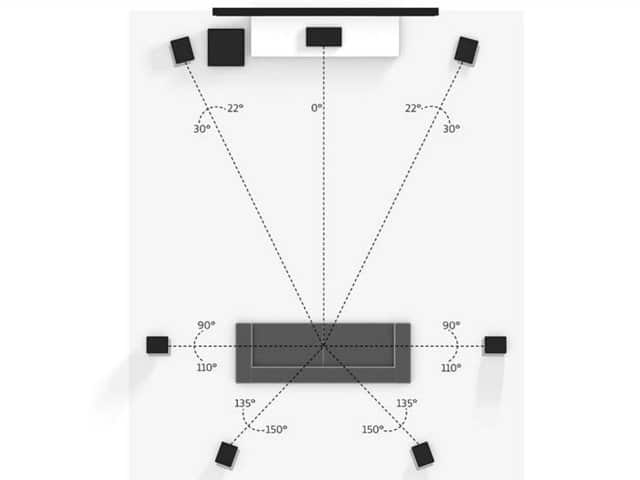 System 2.1
System 2.1 System 9.1
System 9.1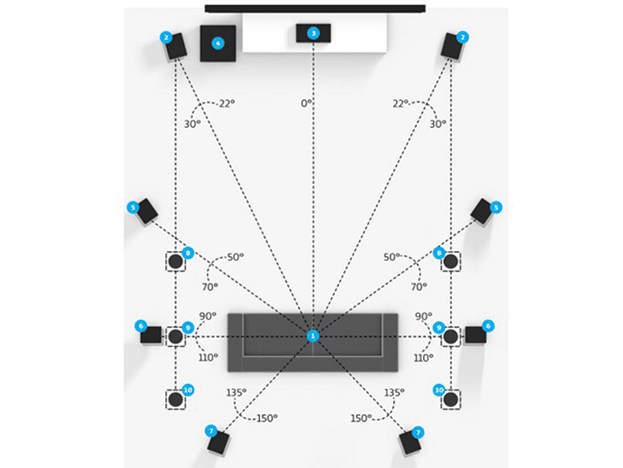 How to make a home theater with your own hands – design, assembly, placement of the speaker system: https://youtu.be/EqsEZjbG0cA
How to make a home theater with your own hands – design, assembly, placement of the speaker system: https://youtu.be/EqsEZjbG0cA
Making a home theater step by step
In order not to be mistaken in the process of assembling a home theater with your own hands, you should adhere to the step-by-step process, which can be found below.
Step-by-Step Speaker Assembly Process – Option One
Stage 1
First of all, the hardware is properly positioned. The speakers should be located at the same distance (2.5-3 m from the audience at head level). The center speaker is directed towards the audience. Each of the elements of the speaker system should be located at head level. It is better to abandon the idea of placing the speakers on the floor.
Note! The subwoofer is installed together with the front speakers. The rear speakers should be above the audience’s head.
The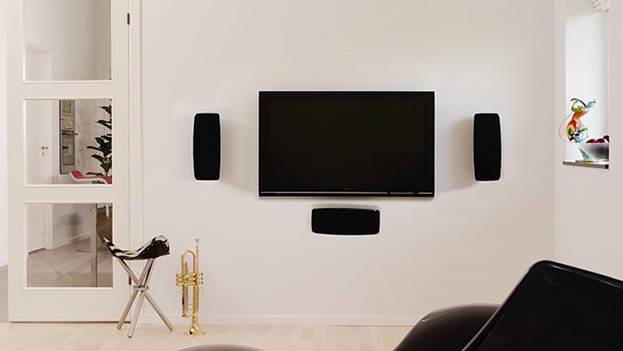 subwoofer is installed together with the front speakers [/ caption]
subwoofer is installed together with the front speakers [/ caption]
Stage 2
To implement the correct placement of equipment, the user will need a sufficient number of HDMI cables. It should be borne in mind that the recommended distance between the audience and the monitor should be in the range of 2-3 m .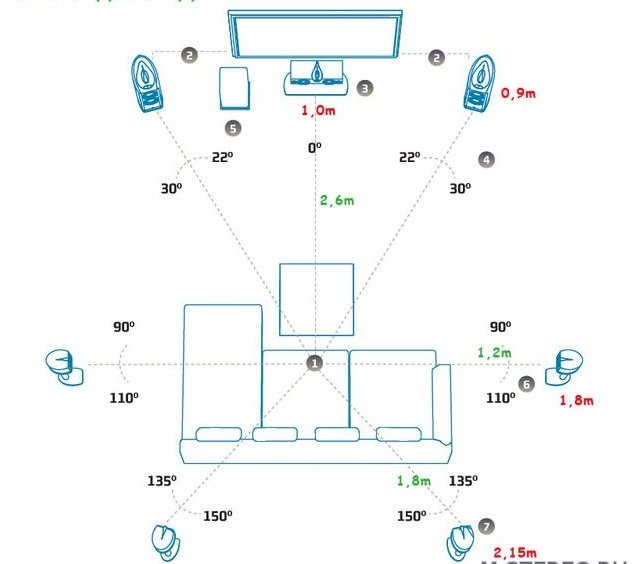 Location of the center channel home theater surround speakers – the distance and placement of the elements acoustic system during the initial design of the recreation center [/ caption]
Location of the center channel home theater surround speakers – the distance and placement of the elements acoustic system during the initial design of the recreation center [/ caption]
Stage 3
After that, you can proceed to setting up the sound. The volume is set using a sound level meter. Then they test the system, including a short video for this. To make the necessary settings, you will need to use the equalizer.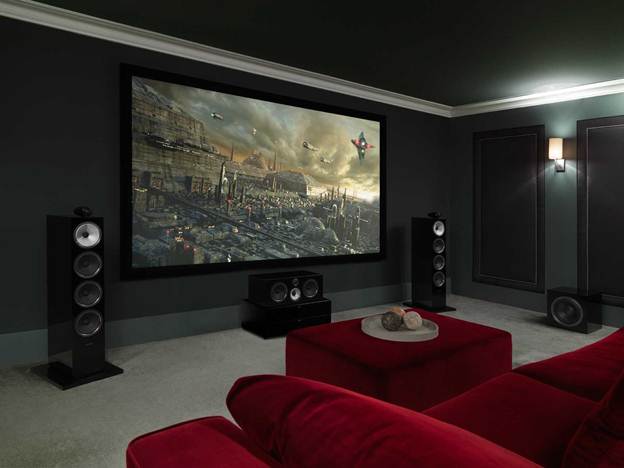 DC assembly [/ caption] The equipment is connected to each other using AV receivers, which have a large number of inputs / outputs. In order not to make a mistake in the connection process, you must adhere to the diagram recommended by the manufacturer. The connectors are clearly marked.
DC assembly [/ caption] The equipment is connected to each other using AV receivers, which have a large number of inputs / outputs. In order not to make a mistake in the connection process, you must adhere to the diagram recommended by the manufacturer. The connectors are clearly marked. Cinema connection [/ caption]
Cinema connection [/ caption]
Option for assembling a home theater yourself from a computer
Step-by-step process for converting a PC into a home theater:
- First of all, purchase and install a TV tuner . When choosing a device, consider the performance characteristics of the processor. For example, for a processor with a power of 600 MHz, a single Hauppauge PVR-150 tuner is suitable.

- Then they purchase an HTPC case and configure the BIOS . The timeout for the system, which can be found in the configurations, is put into standby mode. This will not only save energy, but also extend the life of your PC.
- After that, download and install the Linux Ubuntu distribution . It can be easily found on the Internet and downloaded for free on a PC.
- The system is rebooted and checked if Ubuntu recognizes the TV tuner that has been installed.
- Following the installation recommendations, the user downloads the complete MythTV software package (download from the link https://www.mythtv.org/).
 Diagram for creating a home theater with your own hands:
Diagram for creating a home theater with your own hands: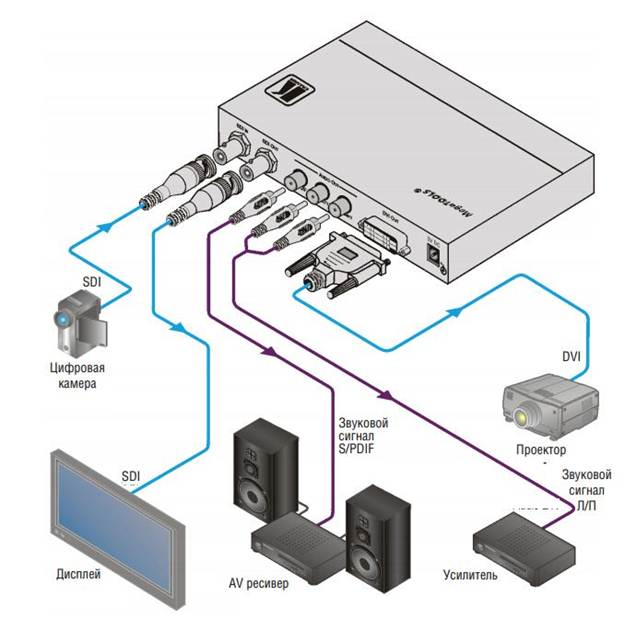 At the final stage, the autonomous launch of MythTV is set when the system is turned on. How to make a projector for a home theater out of a phone – video instruction: https://youtu.be/R5eOW8qTq9M
At the final stage, the autonomous launch of MythTV is set when the system is turned on. How to make a projector for a home theater out of a phone – video instruction: https://youtu.be/R5eOW8qTq9M
Errors and their solutions
Often, people who want to assemble a home theater on their own make mistakes that do not ultimately allow them to achieve the desired result. Below you can find the most common errors and how to solve them.
- Ignoring the isolation process to prevent sound leakage. While watching a movie, extraneous sounds will be annoying and interfere with good rest. It is important to take care of the isolation beforehand.
- Arrangement of a home theater in a room with many windows . Glass surfaces are highly reflective. Better to organize a movie theater in the basement.
- Incorrectly installed sound system . If you ignore the advice of experts regarding the installation of the speaker system, you will hardly be able to fully enjoy high-quality sound.
- Speaker levels not calibrated . Such a nuisance often becomes the reason that the user does not hear the dialogue over the background sound effect. Calibration will help solve the problem.
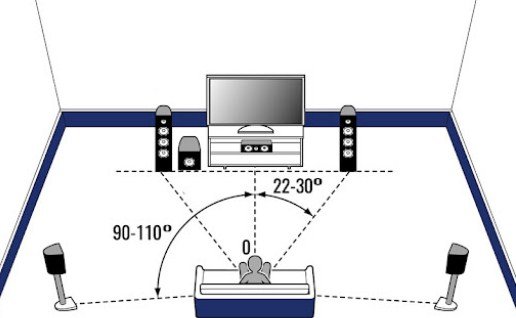 Designing a home theater in a standard room [/ caption] You should also avoid installing too large a screen.
Designing a home theater in a standard room [/ caption] You should also avoid installing too large a screen.
Tips and Secrets
Experts are happy to share tips and secrets of organizing a home theater in the room with their own hands.
- To avoid the appearance of an echo in the room, it is worth sheathe the walls with mineral wool / felt and install upholstered furniture in the room.
- When arranging a home theater, it is recommended to mount soundproof structures on wall surfaces and ceilings.
- The acoustic stretch ceiling will effectively mask the layer of sound-absorbing material that is attached to the fence.
- Cables can be hidden under the floor covering.
If desired, a home theater can be assembled with your own hands. To do this, you do not need to purchase expensive equipment. The components of the middle class are quite enough. However, when choosing equipment, it is important to consider that pairing devices does not cause problems.




